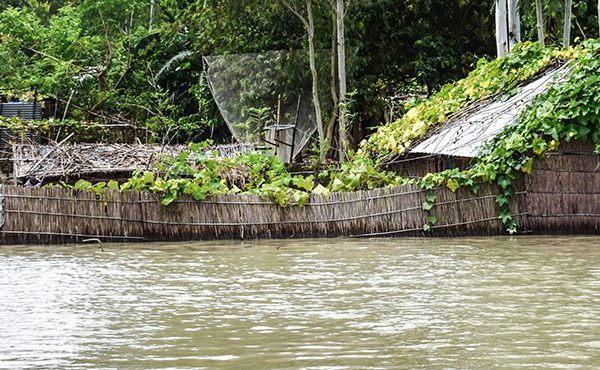Managing change in the Bangladesh water sector: experiences and challenges
Reading Time: 3 minutes
Change is inevitable; rather it is a much needed process for the benefit and progress of any organization. With such intentions of change Dr. Jaap M. De Heer, VU University Amsterdam, presented his study on the various aspects of an organization which, when integrated together, initiate a wholesome change process.
Change is inevitable; rather it is a much needed process for the benefit and progress of any organization. With such intentions of change Dr. Jaap M. De Heer, VU University Amsterdam, presented his study on the various aspects of an organization which, when integrated together, initiate a wholesome change process. The organization in focus was the Bangladesh Water Development Board (BWDB) and the presentation was coordinated by Andrew Jenkins, Donor Liaison Officer at BRAC, at the seminar titled “Managing Change in Bangladesh Water Sector: Experiences and Challenges; Setting the right courses and turning the wheels of change”, on the 22nd of May 2012 at the BRAC Centre. The panel was chaired by DR. W.M.H Jaim, Director of BRAC’s Research & Evaluation Division (RED) and the chief guest was Mr. Mukhles uz Zaman, former Director General of the Bangladesh Water Development Board.The audience consisted of researchers from the BRAC University Climate Change Research Department, researchers from RED, experts and scholars on climate change. The focal objectives, change process within the Bangladesh Water Development Board and enhancing community participation in its various development programs, were briefly explained. Ideas and expectations of the future were briefly explained followed by a detailed outline of the possible solutions incorporating the uses of the limited resources. Highlighting the various elements of change, focus was greater on proper strategy implementation, change process patterns, organizational lifecycle and the organization’s environment itself. The study emphasized strong, active and inspiring leadership for an effective change process.
A briefing followed outlining the current scenario of the Bangladesh water sector and the ongoing transition period towards good governance, service orientation and efficiency. Such transition can be catalyzed by the leadership of Director General of BWDB, an efficient task force and the Netherlands twining force. At this stage to set as an example, the Integrated Planning for Sustainable Water Management programme, implemented by BWDB, was discussed to substantiate the possible path towards change.
Based on the experience of various levels of success of numerous infrastructure development projects for water resources management, the BWDB realised that stakeholder participation, local level water management, and multi-disciplinary project planning and appraisal are essential for an improved and sustainable operation and maintenance of water resources management infrastructures. This view is also reflected in the National Water Policy, Guidelines for Participatory Water Management and National Water Management Plan (NWMP), and based on all these Integrated Planning for Sustainable Water Management was conceived (Source: ipswam-bwdb.org.bd).
The water management programme assists the BWDB to find a practical way to introduce realistic, affordable and sustainable participatory and integrated water resources management. It is a pathfinder programme because the methodology developed is based on actual practical experience. The total budget of this programme is jointly allocated by the Government of The Netherlands and the Government of Bangladesh.
A video, detailing the programme in a specific area and the various interventions of BWDB there, was presented to portray the establishment, continuity, progress and a few short comings of the program, and the effectiveness and multiple positive outcomes of community participation which leads to sustainable development. It is quite a holistic approach in the community as farmers are able to grow more crops every year, water is available at any times of need, fish farming has improved, people are enjoying life, they are more confident, they have gained control over their lives and have the courage to look forward to a brighter future.
Mr. Mukhles uz Zaman, who was also the project director of the water management programme, insisted that such kind of change is a long, painstaking and a continuous process. It is about developing a partnership with the people, and finding the right kind of people who are willing to participate in community development without personal benefit is the most difficult task. The responsibility of the Government and the NGO’s only lies in being the support system which will help the local people to utilize their resources more effectively. The government and support organizations should always be resourceful, develop round the year engaging activities, so that timely support can be provided to the actual beneficiaries. It is necessary to make this into a continuous process, both in the grass-root level and in the policy level.
Progressive and positive change takes time and the willingness to change. Decisions made at a policy level, may not be practically feasible at field level because here people act differently. Various complex factors influence the ultimate result, for instance, budget can act as a huge blockade to the much needed change within the organization. Dr. Jaap concluded the seminar focusing on dissemination of the process of change. A process that is conceptualized based on time and perspective. It starts with the vision of the leader, develops as an ongoing cycle and definitely adjusts and adapts with changing time.





